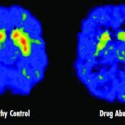Drinking to excess a big danger for women
A New Study at St James’s Hospital, Dublin has shown that excess drinking can lead to heart problems, with the effects particularly dangerous for women.
Doctors investigating the modifiable lifestyle issues of patients being treated for hypertension have found worryingly high levels of alcohol consumption with the consequences including stiffened arteries, enlarged hearts and greater risk of coronary failure.
Dr Azra Mahmud, a cardiovascular and hypertension specialist at the Trinity Centre for Health Sciences based at St James’s Hospital defines hypertension as “high blood pressure that is persistent and sustained” and refers to it as a “silent killer”. This is because it tends to be an “incidental finding” made for example when someone goes to their GP for treatment for a cold.
Mahmud says that the elevated blood pressure can “often have been going on for years with the implication that other things might have been going on in the meanwhile”.
The problem is that this is linked to three major medical problems: cell death in the brain; kidney problems that can result in renal failure; and stiffness as well as enlargement of the heart which can cause heart failure.
In a study presented this year at the annual conference of the American Society of Hypertension, Mahmud studied 200 people being treated for high blood pressure. Blood pressure over a 24-hour period, stiffening of the arteries and echocardiography measures were taken; among other things, echocardiography measures how the heart contracts, relaxes and whether it is bigger than it should be.
Findings showed that for men, excessive drinking (defined as more than 21 units per week) is “associated with higher blood pressure, more stiff arteries (appearing almost 10 years older) and a stiffer heart muscle”.
The more surprising finding was for women identified as excessive drinkers, those drinking more than 14 units of alcohol per week.
The effects “bypassed the normal pathways of how you damage your heart and something was happening directly to the cardiac structure because of the high alcohol intake,” says Mahmud. The biggest finding was that these women had significantly enlarged hearts.
Since having an enlarged heart is a “prognosticator of increased cardiovascular mortality”, according to Mahmud, and the average age of the men and women in the study was 46, these findings should prove a cause for concern for the medical world and society at large.
A very important point is that a clinical diagnosis of hypertension is not necessary for alcohol to have its dangerous impact.
In a study published in 2002, Mahmud had found that more than 21 units of alcohol per week in males chosen from the general population can lead to elevated blood pressure.
WHY WOMEN ARE more affected by alcohol is not yet well-understood. Mahmud says it is possible that they may have fewer enzymes in their stomach lining, so they cannot break down the alcohol effectively. Additionally, they may have poorer metabolising enzymes in the heart itself, which then affects the organ directly.
One of the host of reasons for increased alcohol use is the misinterpretation of the “French Paradox” Mahmud believes. French people have a low coronary heart disease mortality despite a high fat consumption. This is thought to relate to the consumption of red wine which contains flavonoids, “antioxidants that improve nitric availability in the [blood] vessels which makes them more relaxed.
“We know that in moderation it is good but the message is not taken on board; moderation is the message,” says Mahmud. Recommendations say average intake for men should be no more than three units a day for men and two for women. She warns: “It is high time to recognise the potential of an alcohol excess induced epidemic of cardiovascular disease before it is too late.”
_________
source: Irish Times
